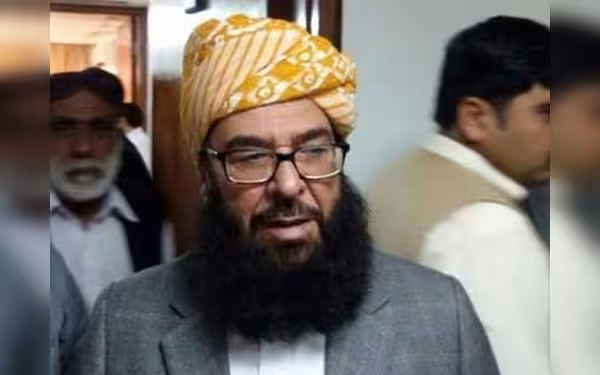Saturday, November 16, 2024 04:53 PM
JUI-F Leader Haidri Demands Delay in Bill Voting for Transparency
- Haidri questions voting on unseen bill.
- Call for transparency in legislative process.
- Importance of informed decision-making emphasized.
 Image Credits: tribune.com.pk
Image Credits: tribune.com.pkJUI-F leader Haidri demands delay in voting on unreviewed bill, emphasizing the need for transparency and informed decision-making.
In the realm of legislative processes, transparency and communication are paramount. Recently, a significant concern was raised by Jamiat Ulema-e-Islam (F) leader, Haidri, regarding the proposed amendments to a bill that have yet to be shared with lawmakers. This situation has sparked a debate about the importance of reviewing legislative documents before voting, a fundamental aspect of democratic governance.
During a media briefing held on Sunday, Haidri expressed his frustration, stating, "How can we vote on a bill we have not seen or read?" His remarks highlight a critical issue: the necessity for lawmakers to have access to the draft of any bill before they are expected to make decisions on it. He pointed out that despite the government's eagerness to move forward, the draft of the bill has not been provided to them. This lack of access raises questions about the legislative process and the rights of elected representatives to fully understand the implications of the laws they are voting on.
Haidri's call for a delay in the voting process until the bill is made available for review underscores the need for a more transparent legislative process. It is essential for lawmakers to have adequate time to analyze the content of any proposed legislation, ensuring that they can make informed decisions that reflect the interests of their constituents.
The situation serves as a reminder of the importance of accountability in governance. When representatives are not given the necessary information, it undermines the democratic process and can lead to hasty decisions that may not serve the public's best interests. As citizens, it is crucial to advocate for a system where transparency is prioritized, allowing for thorough discussions and debates on legislative matters.
The call for a delay in the voting process on the unreviewed bill is not just a procedural request; it is a plea for a more responsible and transparent approach to governance. As the legislative body navigates through these challenges, it is vital for all stakeholders to ensure that the democratic principles of informed decision-making and accountability are upheld. Only then can the trust between the government and the public be strengthened, paving the way for a more effective and representative legislative process.













